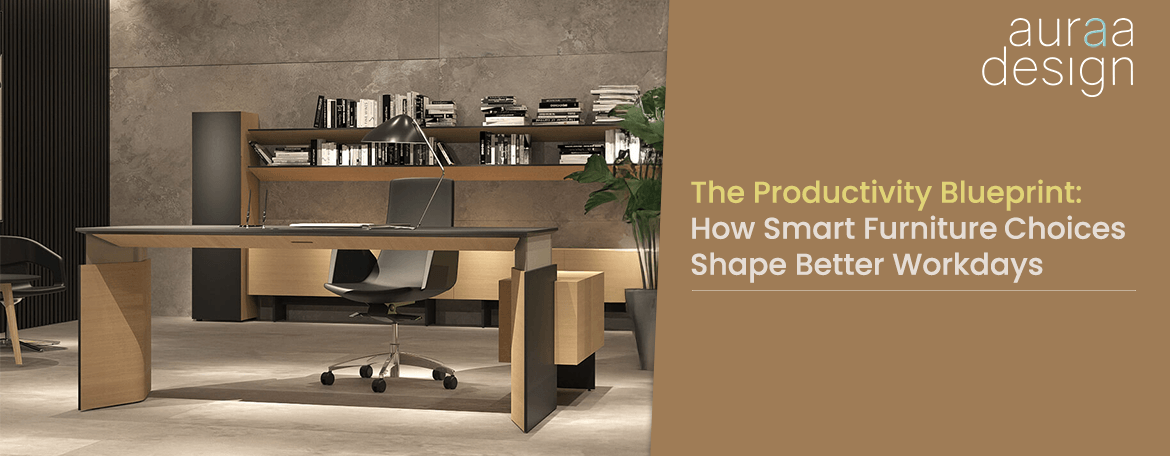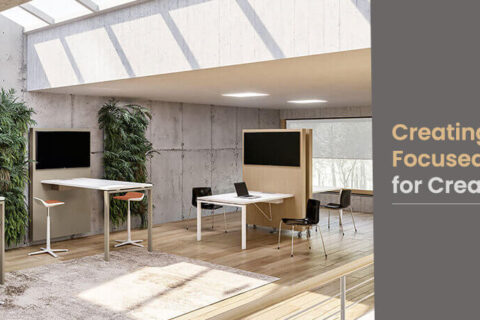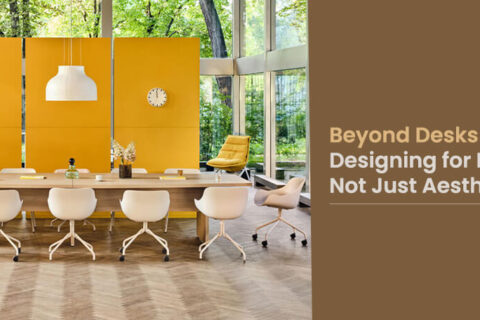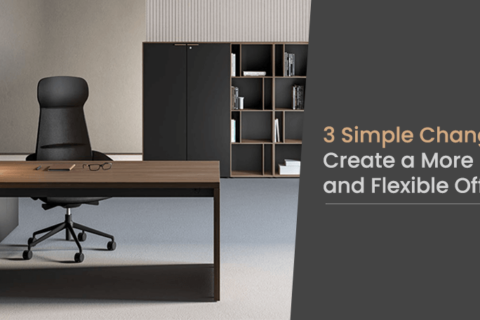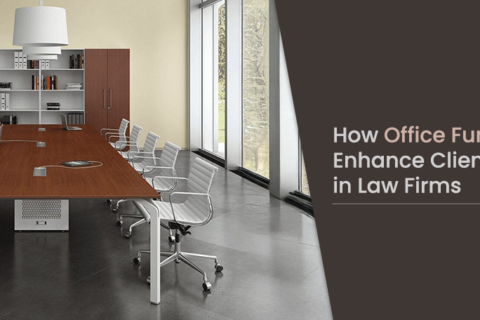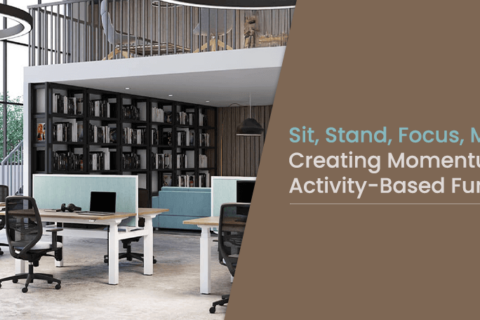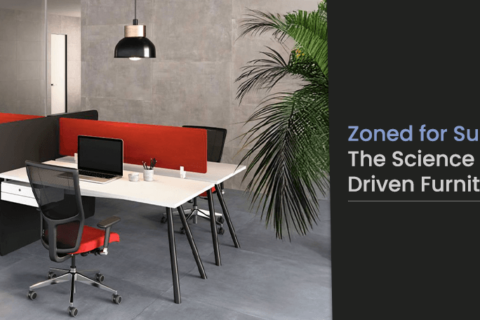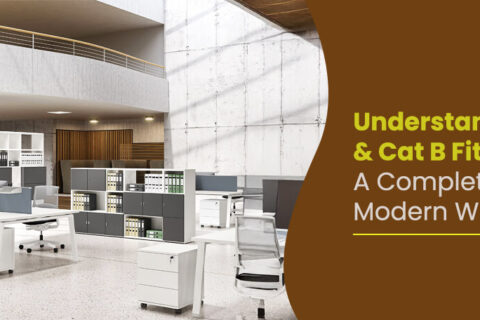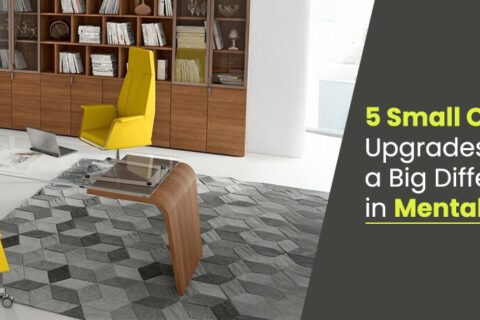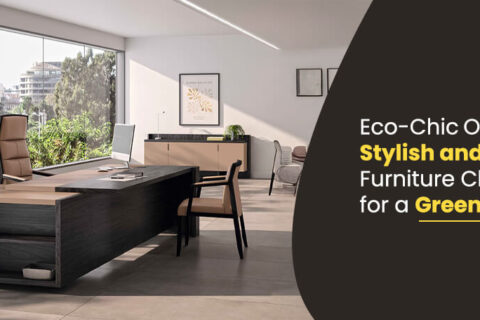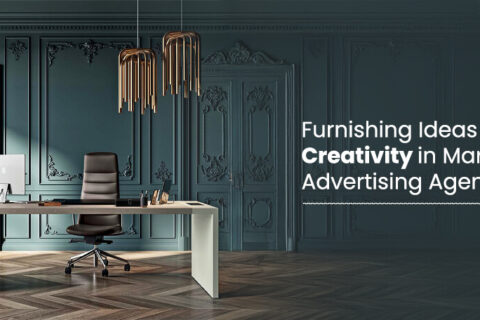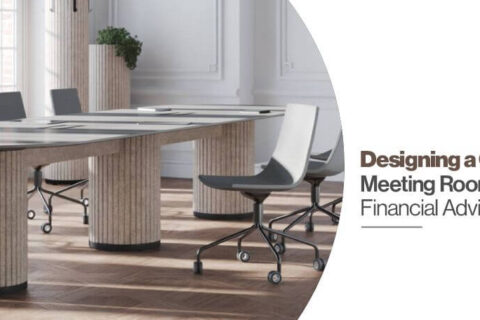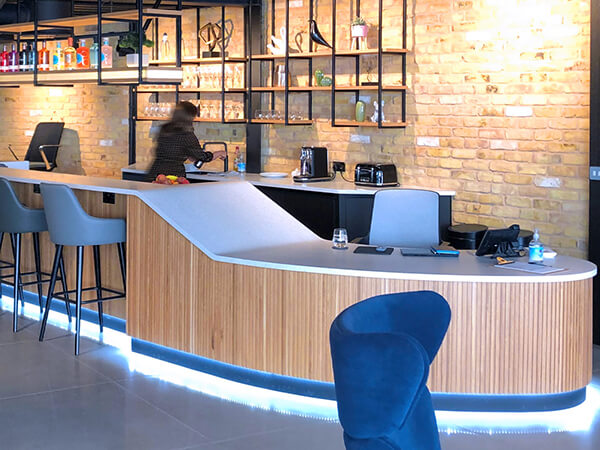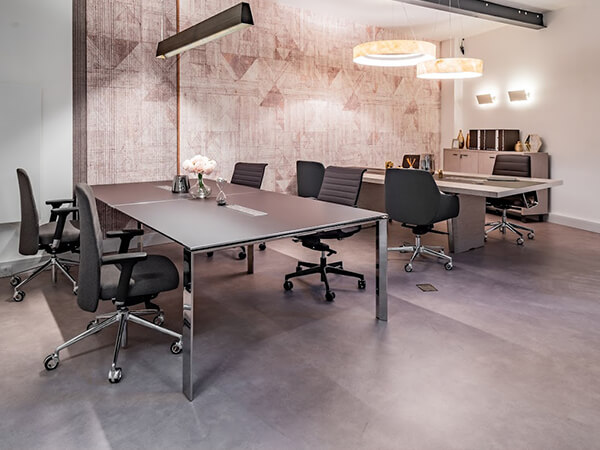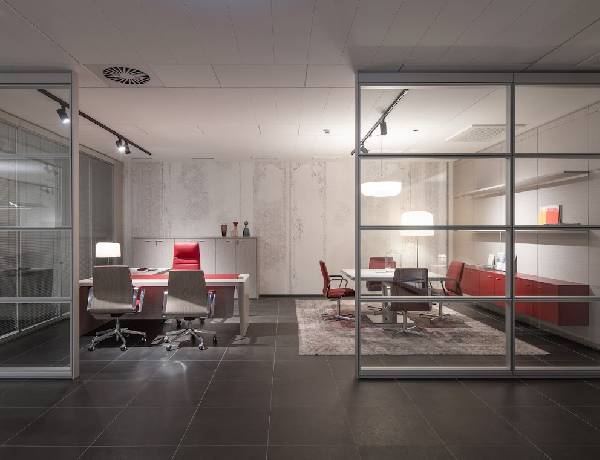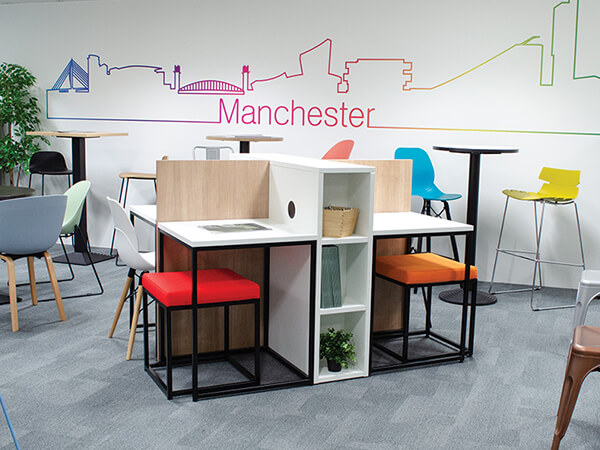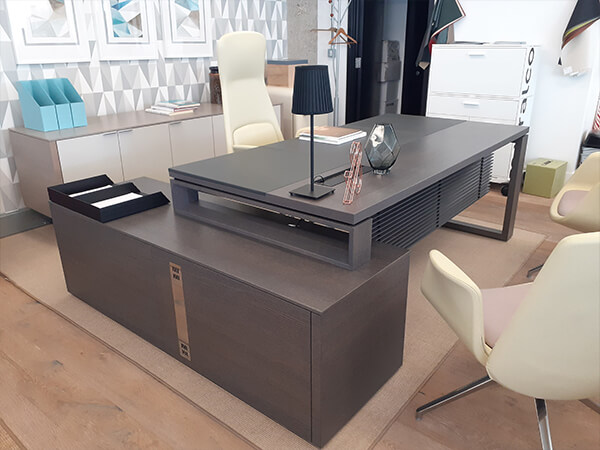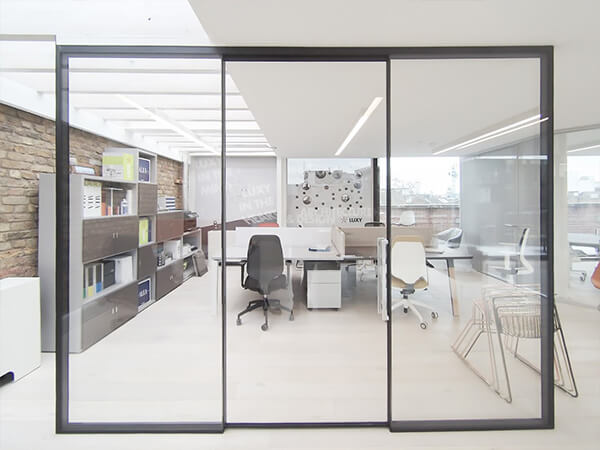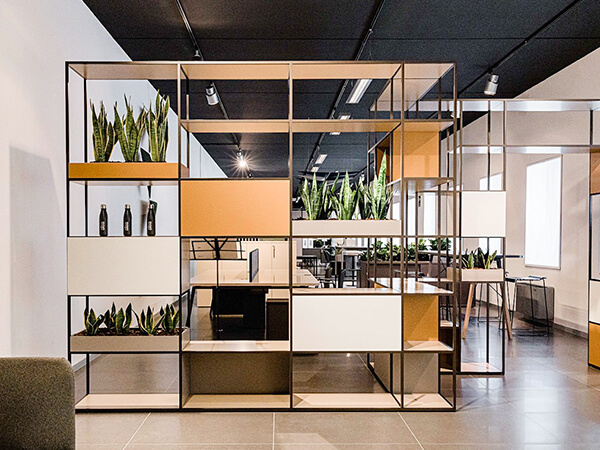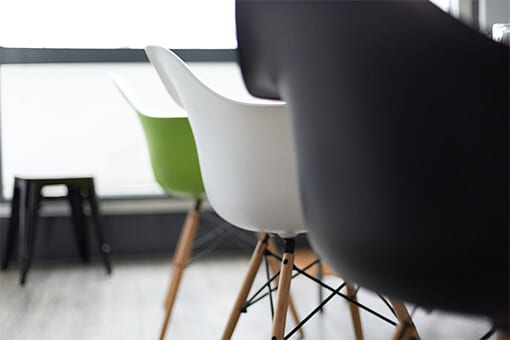Table of Contents
Introduction
Productivity isn’t simply a result of time management or digital tools—it’s equally driven by how workspaces are designed. The right furniture selections directly impact how employees focus, collaborate, and feel throughout their workday. With hybrid work trends and evolving professional demands, the importance of purposeful, productivity-boosting furniture is more significant than ever.
The Role of Furniture in Shaping Productive Work Environments
Today, furniture is not just about function. It supports mental well-being, encourages healthy posture, and helps align physical space with professional outcomes. Smart furniture choices transform ordinary workdays into focused, agile, and energised experiences. So this productivity day let’s explore the role of adaptive, personalisable, and modular solutions in building the ultimate productivity blueprint for the modern office.
Adaptive Desks: Supporting Ergonomic Efficiency
An adaptive desk is not just about standing or sitting—it’s about giving users control over how they work. Height-adjustable desks allow for seamless transitions between postures, which has been proven to enhance energy and reduce fatigue. These desks cater to different work styles and tasks throughout the day—whether someone needs to focus intensely or collaborate briefly.
With programmable presets and integrated cable management, adaptive desks ensure that the workspace remains clean and functional. This freedom of movement drives better circulation and encourages short breaks that reset focus—making it easier to maintain productivity across long hours.
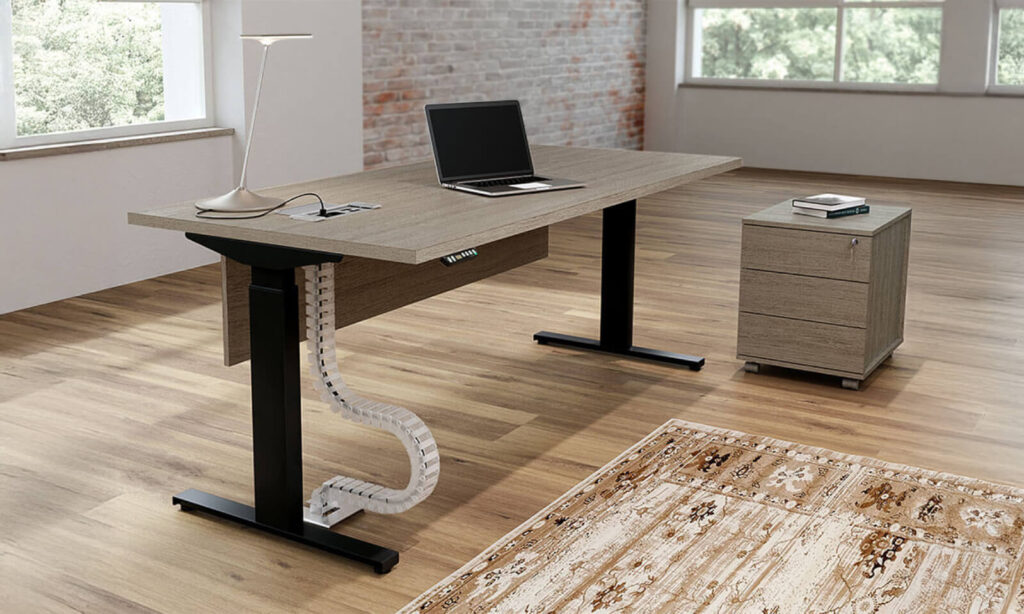
Personalisation in Seating: Crafting Comfort for Focus
Productivity increases when furniture feels personal. Ergonomic chairs that offer customisable settings—such as adjustable arms, seat depth, and lumbar support—help users maintain healthy posture tailored to their body type and work habits. Minimalist design meets function when chairs promote active sitting without cluttering the visual workspace.
When employees can personalise their seating, they feel more in control of their comfort, leading to fewer physical distractions and greater mental clarity. In shared environments, easily adjustable chairs also support hot-desking without compromising support or style.
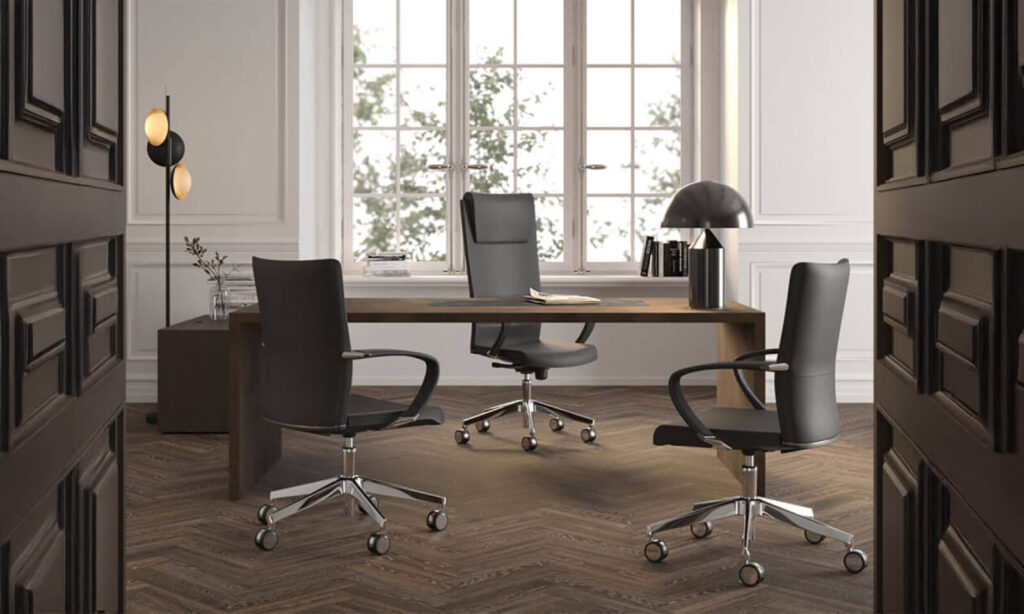
Strategic Layout with Modular Furniture
Modular furniture allows for smart, responsive workspace planning. By using modular desks, storage units, and tables, companies can shape layouts that reflect the needs of their teams. This strategy supports both agile workflows and scalability as business needs change.
For example, mobile storage solutions and reconfigurable meeting tables give users the flexibility to transform spaces quickly—from individual work to team brainstorming. Modular design encourages efficiency through spatial zoning, ensuring that every square metre of an office supports productive behaviour.
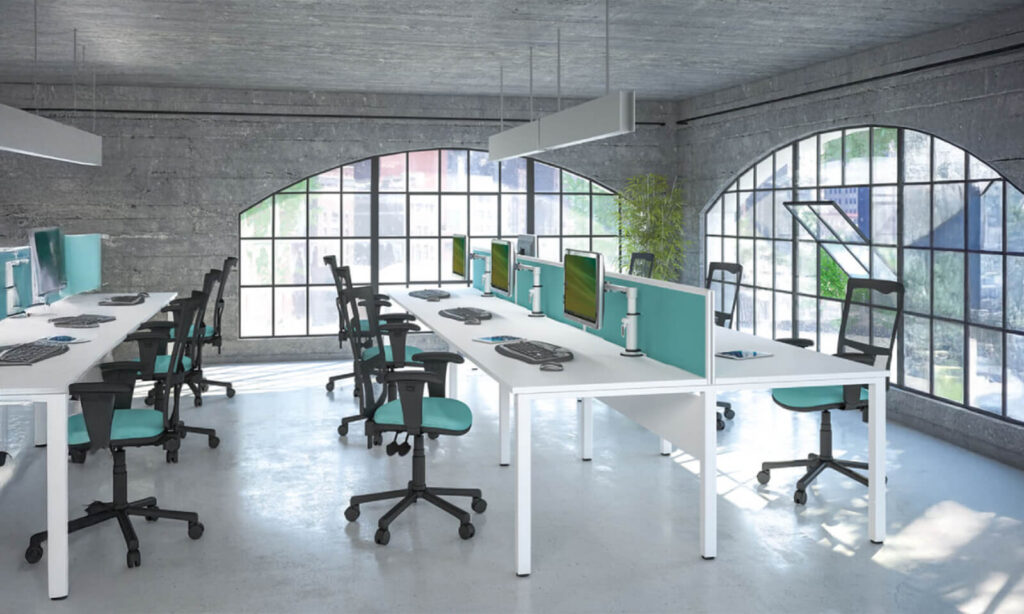
Finish and Material Selection: Enhancing Mood and Energy
The texture, colour, and finish of office furniture impact more than aesthetics—they shape mood and energy. Surfaces with wood grain finishes can evoke calm and warmth, while matte neutrals reduce visual overstimulation. High-durability laminates and anti-glare materials also support clarity and function throughout the workday.
Material choices matter not just for visual appeal but for tactile comfort too. Smooth finishes promote cleaner work surfaces, while breathable materials used in chairs prevent discomfort during long tasks. Ultimately, thoughtful finish and material selection can help regulate emotional responses and boost workplace satisfaction.
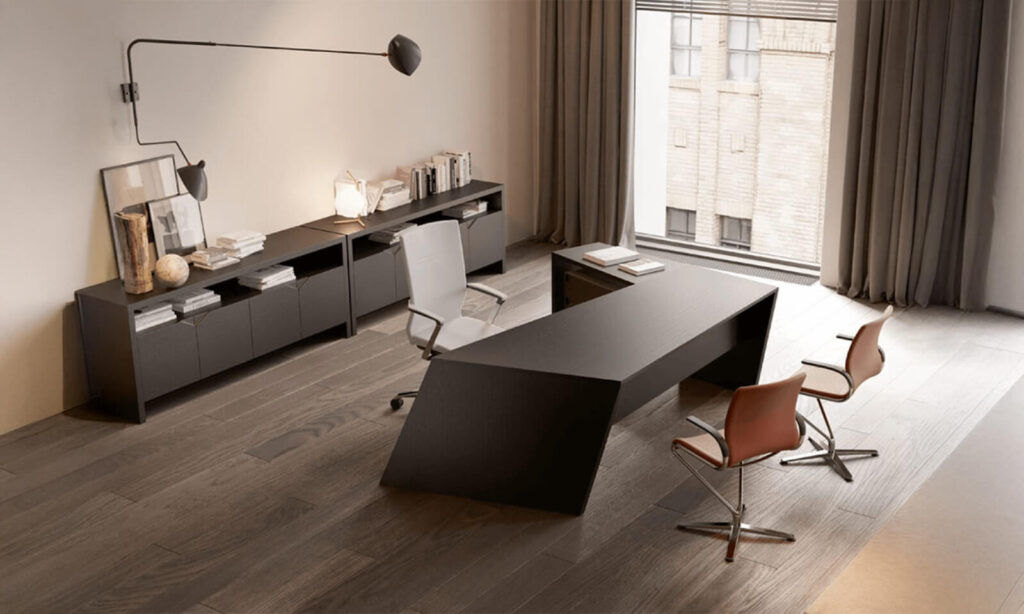
Collaborative Zones: Designing for Seamless Teamwork
No workplace can thrive without collaboration—but shared spaces must be thoughtfully designed. Furniture built for teamwork includes modular meeting tables, shared benching systems, and comfortable soft seating. These enable flexible group interactions without sacrificing structural order.
Collaborative furniture should support different types of meetings: from informal catch-ups in soft breakout seating to formal presentations at configurable meeting tables. By reducing barriers to communication and movement, these setups encourage faster decision-making and deeper creative thinking—both critical elements of productive workdays.
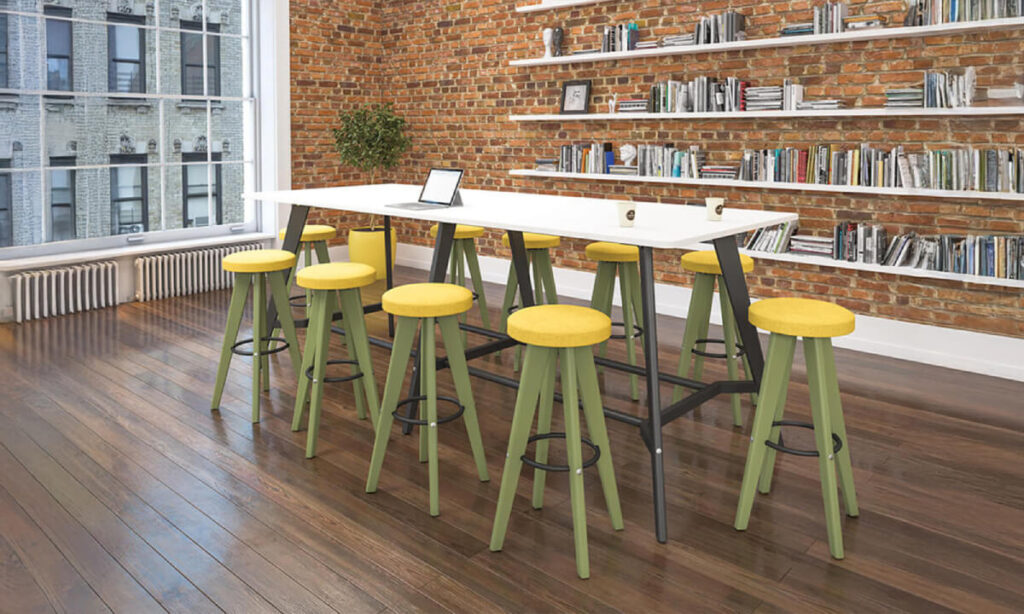
Wrapping Up
The furniture you choose is more than a visual statement—it’s a silent partner in every workday. From adaptive desks that support posture to soft seating that nurtures creativity, each choice contributes to a more effective, balanced, and human-centred office.If you’re looking to create a workspace where productivity is the natural outcome of thoughtful design, Auraa Design offers a wide range of adaptable desks, minimalist chairs, acoustic pods, and collaborative systems. Contact us today to explore how our furniture collections can help you build your own productivity blueprint—one smart, stylish decision at a time.





